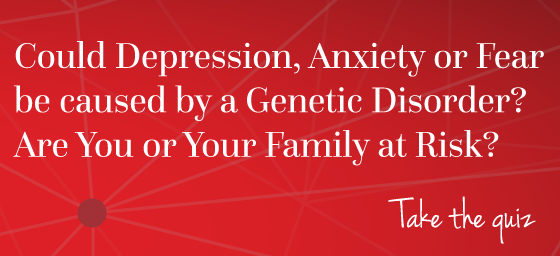Long term stress or illness can have a substantial effect on your body that can be hard to recover from, driving you into a physical state of low brain function, depriving your brain of the oxygen, nutrients, hormones and chemicals required for it to work at its best. Coupled with fatigue, it leaves you too tired to exercise or to eat well, and unable to give the effort you know you need to, into the life you deserve to lead. The depression, anxiety, and for some, a chronic fatigue state leaves you struggling to get out of bed each day, unable to think clearly, make decisions, and unable to give the love and attention you want to your partner, family, or to yourself. The sadness, despair, fear, exhaustion, confusion, loss of hope, loss of happiness, and the negative, and sometimes harmful thoughts, that you know are not who you really are, can be too intense to bare, sometimes too intense to share with the people you need to, and sometimes too far of a decline in your health to be remedied by one pill.
A life with incredible health, abundance of energy and a sense of happiness like never before isn’t impossible when you understand how to work the machine that is your body and brain
Recognising that this is a whole body experience, not only caused by your brain, though the brain feels the lion’s share of the symptoms, and understanding how this has happened, gives you the power to end the depression or anxious state, and therefore the stress, allowing your body and brain to cope again. If stress has been so great that you are suffering with any of these symptoms, you may need to reset your system to get back on track. Antidepressants are designed to treat the symptoms of brain chemical imbalances, which may not assist when the depressive state is based on nutritional deficiency, hormonal depletion or any number of other ways depression can affect your life. Always look to treat the right cause with the right treatment to resolve it quickly the first time, and reduce your risk of lifelong medication and illness.
Being mentally healthy is a very important part of your life and health, with so many people diagnosed with depression and anxiety the effect on individual lives, families and relationships are increasingly damaging. There is more that can be done to reduce your risk. Imbalances in brain neurotransmitters cause symptoms such as depression, anxiety, insomnia, irritability, tiredness, sadness, loss of motivation, anger, addictive behaviour, aggression, sugar or alcohol cravings, and many more.
Mental health disorders such as ADHD, Autism, Alzheimer’s, Clinical Depression, Anxiety, Stress, Dementia, Sleep Disorders and other psychological conditions are examined from a biochemical perspective, the causes are explored, and treated based on individual situations. Genetic mutations, food intolerances, gut dysbiosis, malnutrition, nutritional deficiency, inflammation, toxic overload, adrenal stress or fatigue, and hormone imbalances may all be triggers, and in most cases are able to be restored to normal healthy levels.
Brain Neurotransmitters
There are a number of brain neurotransmitters, including serotonin, dopamine, histamine, acetylcholine, GABA and more, all of which need to be in balance to feel happy, motivated, calm and content. These brain neurotransmitters are made of specific vitamins, minerals and enzymes our body either makes, or we consume in our diet. Deficiencies of these essential nutrients develop into imbalances of our brain chemicals, and are often depleted rapidly during stressful periods, through nutritional deficiency in poor dietary habits, reacting to food intolerances or changes in our gut flora. With careful investigation, these deficiencies are simple to restore to normal healthy levels when the underlying cause is found.
Brainwave Patterns
Brainwave patterns may become abnormal over time during acute stress, or for those suffering PTSD, children or people exposed to abuse, trauma such as a head injury, or when brain neurotransmitter levels are imbalanced for some time due to biochemical or nutritional deficiency. Symptoms of mood disorders such as anger or aggression, behavioural or learning difficulties, or mental health disorders may become permanent when brainwave patterns are outside of normal ranges for long periods, making it difficult to successfully recover with sustainable results.




